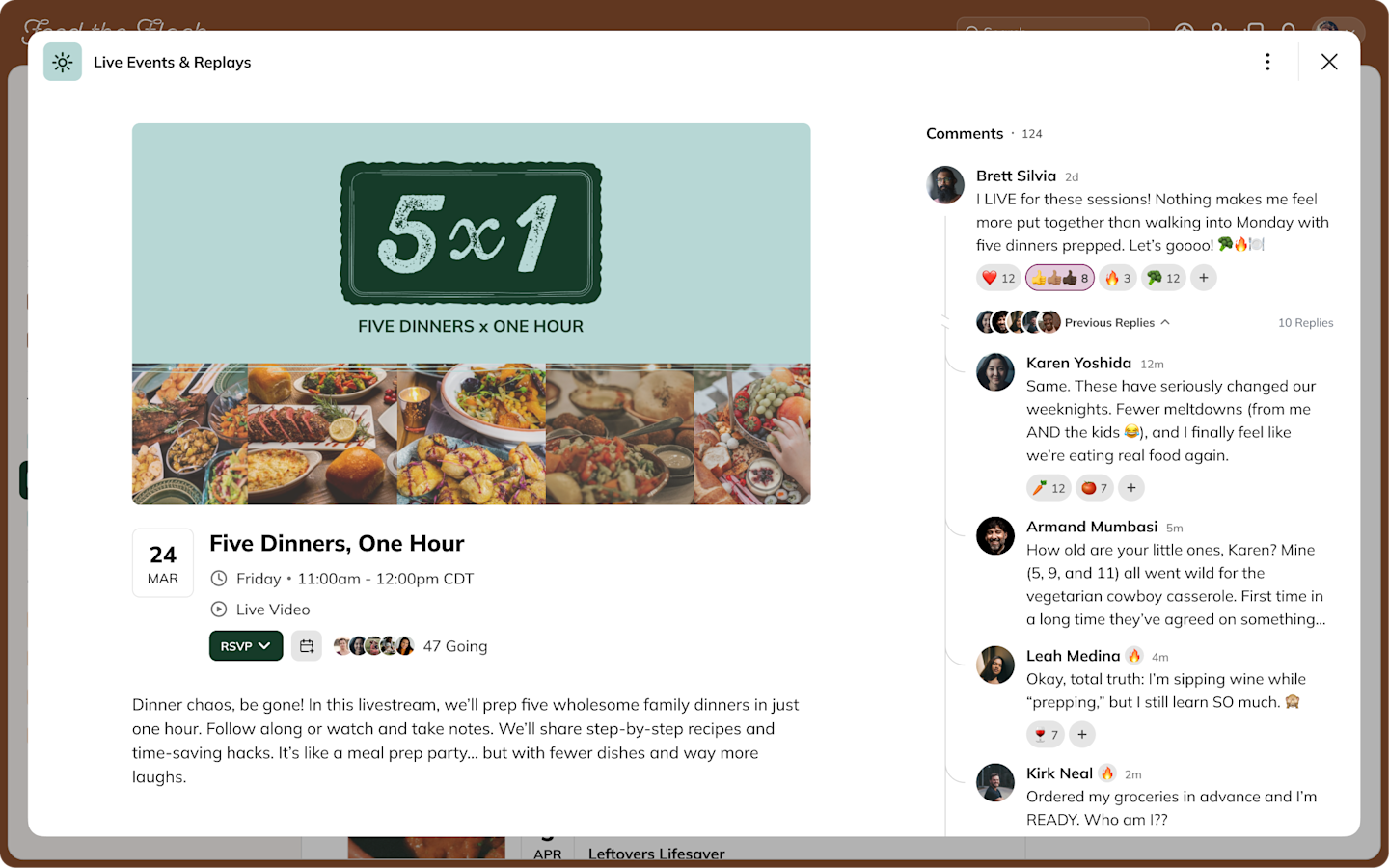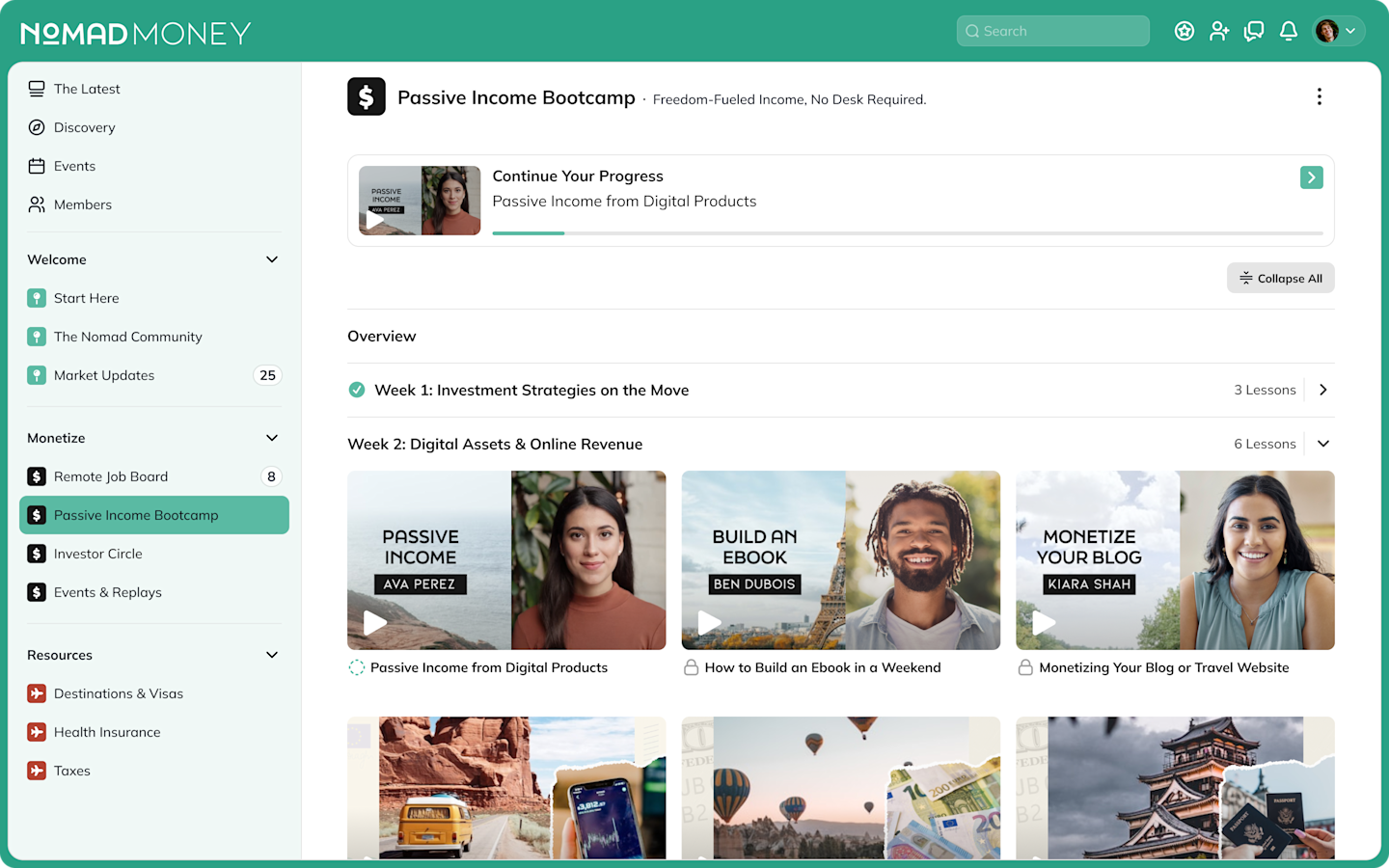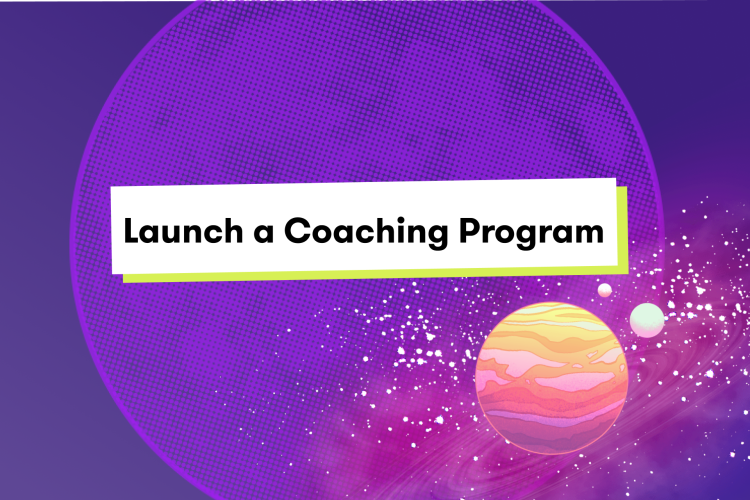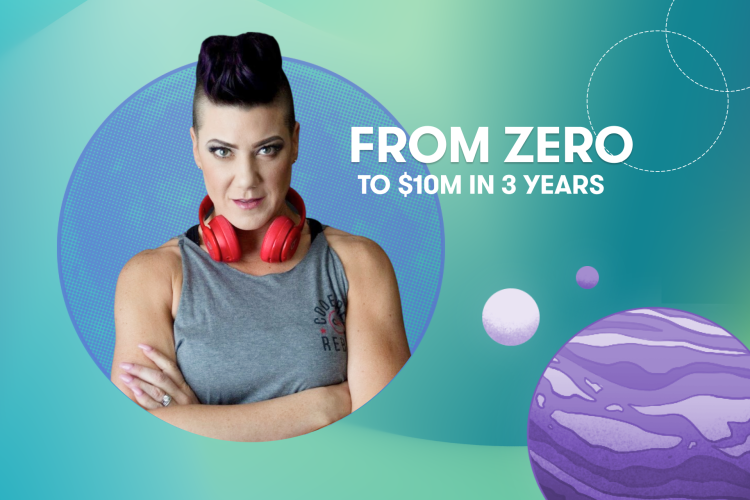Coaching
How to Start a Life-Coaching Business Online (2026 Guide)
For more and more people, achieving one’s full potential requires a coach. We walk you through how to build a thriving online life coaching business.
Author
Mighty Team
Last Updated
January 20, 2026

Table of Contents
Carol Dweck's famous work on growth and fixed mindsets showed us something amazing: people who believed that they were capable of growth, and that their identity was flexible, experienced growth much more than people who believed their identity was fixed.
When Dweck's work was launched, personal growth was a niche industry with relatively few people talking about it. Fast forward to the 2020s and personal growth is everywhere. We have a whole industry of self-help books, TED Talks, and websites dedicated to helping us achieve our full potential.
And for a lot of people, achieving one’s full potential requires a coach. A coach can help people break out of fixed mindsets, conquer limiting beliefs, and grow into something they're not. And a lot of people are looking for coaches online.
If you are one of these people, a coach who wants to know how to start a life coaching business online, it's a good time. There are lots of potential clients out there looking for help, and the explosion of online services has made it easier than ever to build a coaching business.
In this article, we're going to walk you through building an online life coaching business.
What is a life coaching business?
Life coaches are people who work systematically to help others grow to reach their fullest potential. A life coaching business, then, makes money by helping others reach their potential. In technical terms, a life coach works with a client with combinations of 1:1 and group coaching to help them overcome obstacles and set and reach goals. The life coaching industry was around $1.5 billion USD in 2022.
Life coaches can come in a lot of shapes and sizes and can work with people on everything from money to dating to personal growth.
How to start a life coaching business online
1. Have an ideal client
Every successful business starts with an ideal client, similar to an ideal member for membership sites.. And life coaching is no different.
If you’re planning on making money with life coaching, you'll need to have a really clear sense of who your business serves.
For most people, this means niching down.
If we were to ask you your ideal client and you said, "Anybody trying to get past mental blocks," that's a pretty huge list of people.

Could you narrow it down? For example, instead of coaching on limiting beliefs, how about limiting beliefs for new millennial business owners?
Successful coaching businesses run on niches.
Once you discover your niche, check out our Coaching Business Name Generator and create a coaching name that feels like magic.
And if you're trying to find your ideal students, one of the best ways forward is to interview people. Talk to 15 or 20 potential coaching clients and find out what they're struggling with and identify how you could help them.
2. Pick your coaching model
There are a lot of different ways to set up a coaching program. For example, you could be a straight one-on-one coach–selling packages for six coaching sessions. Or, maybe you invite people into a group coaching session. Maybe you offer a course or community.
If you're creating a life coaching business, don't be afraid to be flexible in how you help your clients get to their goals. For example, do you have lessons that you find yourself teaching again and again? Maybe you should create a course for that, and focus your client's time on implementing it.

The thing is, there are so many different ways to add value in a coaching session. You need to find the best way to help your clients thrive AND develop a business model that will be profitable for you and create recurring revenue.
3. Create an offer
So, if you have an ideal client and you know the type of coaching you want to do, the next step is to create some type of offer.
Creating an offer early on will do two things:
It will help you get some cash flowing in.
It will validate your business model.
Selling and getting some cash coming in is the lifeblood for any business. That's pretty straightforward.
But validating your business model is important too. If you think you have a great niche and you have done the work to find your ideal client, it should work. But if you struggle to sell your first offer, it might be an issue of having the wrong client, the wrong offer, or the wrong price point.

And the great thing about creating an offer early is that - even if it doesn't work - you can always adapt it and try again.
And don't give up if your first offer flops. It doesn't mean this isn't your path. It just means you need to figure out a different way. Reformulate and try again.
4. Choose your tech
When you're selling life coaching, at a minimum you need a few things. Some way to organize your calls, a point of sale to collect money, and the tech to run your calls (if they are virtual).
And from there, the sky’s the limit. Do you want to run courses? Live or pre-recorded (synchronously or asynchronously)? Do you want to create a program for people to go through? Do you want to host a live event?
The problem is, you need a tech solution to let you do all the possible things in one place. If you’re trying to stitch five software solutions together, STOP!

A great online coaching platform will do all these things in one place.
Come check out Mighty! It's an all-in-one coaching platform that lets you bring together coaching sessions with content, courses, community, and commerce. And flexible Spaces add live events, member profiles, discussion forums, Q&A, chat and messaging, and more.
5. Figure out acquisition
Next, let's talk about customer acquisition. If you interviewed your ideal clients, you have a fantastic place to start for acquiring your clients. You can pitch them your offer and see if they go for it.
If that doesn't work, you'll need to find a way to reach potential coaching clients. The fancy word for this could be “marketing,” but you don't need a mass marketing campaign to build a thriving coaching business.

Especially if you are selling high-ticket offers, a handful of clients could be all you need. So how are you going to get your offering to some of those clients? Here are some ways:
Reaching out to an existing email list
Post on social media
Message potential clients (e.g. on LinkedIn)
Pay to advertise (e.g. you could bid on a Google pay-per-click keyword like "life coach for seniors")
Offer an affiliate program for your existing clients
Host a taster webinar or event
Post your services on a coaching marketplace
Use funnel software like Clickfunnels
Your customer acquisition process doesn't need to include all of these things. That's bonkers.
In fact, just one of these can help you create a wildly successful life coaching business. So figure out what works for you and forget the rest.
Here��’s why we love communities for acquiring coaching clients. When you launch an online community, you’re not just shoving people through some sort of funnel until they convert. And you’re not trying to mix your coaching with courses and events on some other platform. A community brings it all into one place, creating an enormous amount of VALUE. We call this a community flywheel. People get value from community, courses, live events, and coaching.

6. Build and deliver
Whatever the offer looks like, the next step will be doing some combination of building and delivering a program.
Focus on what you need to get your clients the transformations they want. Anything else is a waste.
Create the very best possible experience you can and you'll see higher client satisfaction and word-of-mouth growth.
7. Offer more
Before you go and try to find more clients, consider offering more to your existing clients. For many coaches, your current clients offer the most potential.
If you can find ways to offer more value to them, you've got a proven way to grow your business. Try offering a premium event, bonus content, or even a branded app. You might find that existing clients are your best path to growth.

8. Learn and adapt
There's a mistake that many would-be life coaches make; they give up too early. Great things take time, and building a business can be a challenge.
The old axiom is that many people work for years and then find themselves an overnight success.
Not everything's going to work. But pay attention to what does and lean into that. Learn and adapt as you go. It's the secret to a thriving life coaching practice.
9. Scale
This one's optional. But you could choose to scale your business. Once you figure out what works, you can hire a team and lean into the work you are doing well.
Or, you can stay small and keep it a simple life coaching practice. It's your call, and there's no right answer.
Ready to start?
If you're ready to start your life coaching business, come build on Mighty! You get a powerful feature set that gives you EVERYTHING you need to build your business in one place. You can sell coaching packages and memberships in 135 different currencies, and you get a great app for every device. Mighty even has Mighty Co-Host™, a community AI that can instantly outline courses, create landing pages, and build better content.
Ready to start building your community?
Start a free 14-day trial to explore Mighty—no credit card required.
More like this
Join Mighty Community
Learn the principles of Community Design™ (and see them in action) alongside thousands of creators and entrepreneurs. It's free to join!

Online Courses
Creating a Course
Teaching a Course
Course Platforms
Selling a Course
Communities & Memberships
Community Platforms
Managing a Community
Building a Community
Growing a Community
Monetizing a Community
Creators & Entrepreneurs
Monetization
Content Creation
Starting a Business
Website Builders
Creating & Managing a Website
Events
Event Platforms
Hosting & Marketing Events
Branded Apps
Creating a Mobile App
Coaching Apps
Community Apps
Coaching
Mastermind Groups
Starting a Coaching Business
Coaching Platforms
Filter by Category
Online Courses
Communities & Memberships
Creators & Entrepreneurs
Events
Branded Apps
Coaching
Start your free trial
14 Days. No Credit Card Required.


















